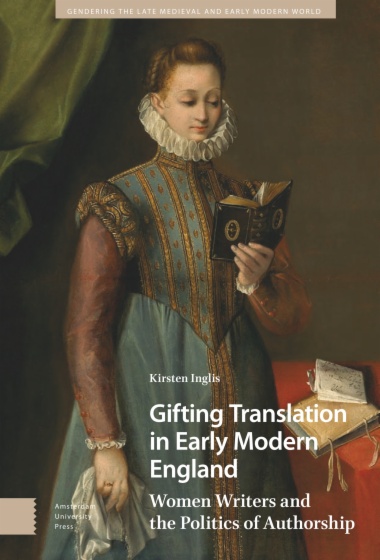Translation was a critical mode of discourse for early modern writers. Gifting Translation in Early Modern England: Women Writers and the Politics of Authorship examines the intersection of translation and the culture of gift-giving in early modern England, arguing that this intersection allowed women to subvert dominant modes of discourse through acts of linguistic and inter-semiotic translation and conventions of gifting. The book considers four early modern translators: Mary Bassett, Jane Lumley, Jane Seager, and Esther Inglis. These women negotiate the rhetorics of translation and gift-culture in order to articulate political and religious affiliations and beliefs in their carefully crafted manuscript gift-books. This book offers a critical lens through which to read early modern translations in relation to the materiality of early modern gift culture.
- Cover
- Table of Contents
- Acknowledgements
- Introduction
- ‘Transformance’: Renaissance Women’s Translation and the Performance of Gift Exchange
- 1. ‘Thys my poore labor to present’
- Mary Bassett’s Translation of Eusebius’s Ecclesiastical History
- 2. ‘For the comodite of my countrie’
- Nation, Gift, and Family in Lady Jane Lumley’s Tragedie of Iphigeneia
- 3. ‘Graced both with my pen and pencell’
- Prophecy and Politics in Jane Seager’s Divine Prophecies of the Ten Sibills
- 4. ‘The fruits of my pen’
- Esther Inglis’s Translation of Georgette de Montenay’s Emblemes ou Devises Chrestiennes
- Conclusion
- ‘Shall I Apologize Translation?’
- General Bibliography
- Appendix 1
- Table of Emblems and Dedicatees in Esther Inglis’s Cinquante Emblemes Chrestiens (1624)
- Index
- List of Illustrations
- Figure 3.1. Jane Seager’s Divine Prophecies of the Ten Sibils (1589). English translations appear on the verso side of each folio, with facing page translations into Timothy Bright’s shorthand characterie. British Library MS Add 10037. © The British Libra
- Figure 3.2. Verre églomisé front and back covers of British Library MS Add 10037. © The British Library Board.
- Figure 4.1. Esther Inglis, self-portrait and laudatory verses (7r). Cinquante Emblemes Chrestienes. British Library MS Royal 17 D XVI. © The British Library Board.
- Figure 4.2. Detail, Esther Inglis, Emblem III (Elizabeth Stuart, Queen of Bohemia) British Library MS Royal 17 D XVI © The British Library Board.

